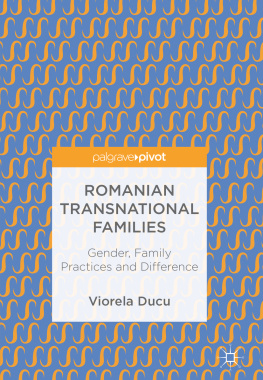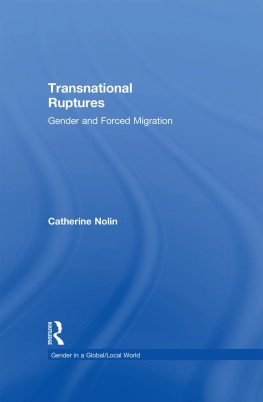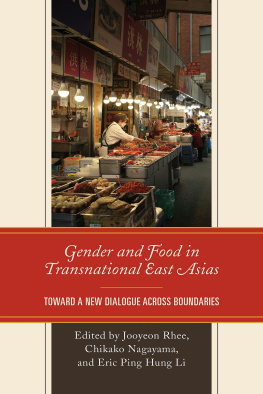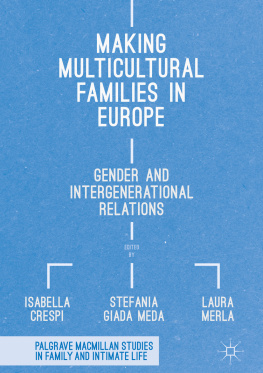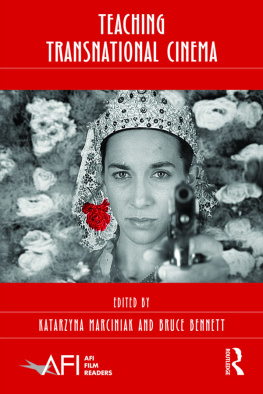Abstract
In this short introduction, we review the key theoretical concepts on which the book is based: transnationalism, gender in migration, transnational families and family practices. In the book overview contained therein, we explain the concept of temporary transnational suspension, which defines the existence of most of our respondents.
Theoretical Context
The concept of transnationalism (Basch et al. ), thus making it possible to conceive the notion of living in multiple worlds. The special merit of the new perspectives has been understanding mobility outside borders, not as departure , a one-directional movement toward the host country with integration there as a goal, but rather as a permanent relation to both the point of departure and that of destination, with an effect in both directions. Hence, we can speak of a strong influence of those who have departed on those who have stayed, the latter being involved in transnational existence, even while staying within national borders.
At the macro level, the sociopolitical interconnectedness of countries, geopolitical transnational relations and so on have allowed the development of transnational existence, which can be felt at the level of the individual, whether a leaver or a stayer . A defining role in the development of transnational existence, wherein a constantly increasing number of persons is involved, is played by the advancement of information and communications technology (ICT), which allows for permanent virtual interaction, as well as the development of transportation infrastructure and services , especially the emergence of the concept of low-cost air transport companies, enabling a growing number of people to be physically interconnected to an increasing degree at an expanding frequency and over greater distances.
Another defining moment of research has been the involvement of women as a subject within the study of migration (Petraza-Bailey ).
As Srensen and Vammen have underlined in a meta-analysis of studies on transnational families published in 2014, the general tendency of research was to think in terms of opposing binaries, such as women versus men , adults versus children, stayers versus leavers and staying connected or breaking relations, with a special emphasis on departed adults with an active role, while the elderly and children are viewed as stay-behind dependent persons. The recommendations of this study are to bring the elderly and children to the fore in research on these transnational families, analyzing their role within these families beyond being receivers of transnational support, as well as sometimes being the agents of movement themselves. Moreover, the current tendency is to look upon these families, not in terms of a binary opposition, but as families living in a permanent state of copresence.
We emphasize that most of the research on transnational families have been carried out through the prism of the concept of care (Raijman et al. ), not only from the perspective of womens empowerment, but also from that of the relations between women and men within these types of family.
Family Practices and Transnational Families
When these families begin to be understood from the perspective of members copresence, with the distances between them curtailed by permanent transnational relations, the best analytic approach when considering them involves the notion of doing family , as developed and refined by David Morgan ().
Overview of the Book
This book has members of (at least partly) Romanian transnational families as primary subjects, with a special interest in couples as a central component. Within transnational family research generally, couples enjoy a highly rare presence as the focus of analysis, due to the binary logic that we are used to in this field: When we encounter a couple where both partners live in the same country, especially if their children are with them, rather than a couple with the partners living in separate countries, in order to be classifiable as a transnational couple, the tendency is to remove this couple from the transnational framework and start thinking of their integration in the host country. But couples, even if the partners live together in a target country along with their children, are still inscribed in their extended families, with which they often maintain transnational relations; even if they are binational couples (Gaspar ), that is, couples comprising a Romanian citizen and a citizen of another European Union (EU) (in the narrowest sense) country, they live in such transnational relations with their extended families.
Moreover, a large segment of these couples are living in a state of temporary transnational suspension: they do not have the slightest intention of definitively settling in the host country, but live there for an undetermined period of time (i.e., temporarily), and are therefore transnationally connected to their home countries, not only for the purpose of doing family with members of their extended families, but also to maintain a constant readiness for a probable return . Thus, their way of living in relation to the community in the destination country is as autonomous as possible, in the sense of not cultivating a large number of attachments or roots, while trying to get as much as possible out of the mobility situation (money and/or pleasure) without getting too deeply involved (hence, suspension). Analyzing transnational families from the perspective of couple relationships as well, the way in which gender relations are articulated in these families becomes more visible. This approach links distinct phenomena, which have been studied in different fields, such as transnational family studies (Schmalzbauer ) on the other.
After a very short review of the methodological approaches, the book has a threefold structure. The first part offers a comparison of two living strategies outlined by accommodation type: the strategy of stealthy living among the low-skilled population in London , on the one hand, and the strategy of living lavishly among the high-skilled population in Mons , on the other. The second part focuses on the transnational relations of these families from both directions, that is, departed and staying, with an emphasis on less-studied aspects: gender roles in transnational communication, recreational visits of the elderly abroad, relationships between family members who are spread out over several countries and the transnational formation of couples. The third part of the book presents various situations that the children of these families encounter, especially since many of them (in contrast with their parents, who can afford to live in a state of temporary transnational suspension ) are less autonomous in what concerns the destination country: integration into an educational system imposes upon them an expectation to settle in the destination community, to which they become more attached, even if their parents try to prepare them for their community of origin in view of a probable return.
Each part contains a specific theoretical introduction and, although each is centered on the concepts of gender and family practices and involves members from (partly) Romanian transnational families as subjects, it can be read and understood as a distinct chapter, with its own individual unity.

